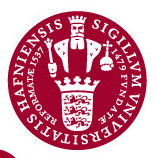Diabetes - The Essential Facts - What Role Does Overweight and Obesity Play ? (17:27)
(View Complete Item Description)This presentation address how being overweight and obese is considered one of the strongest predictors, regarding the development of type 2 diabetes. Almost 85 % of people living with diabetes type 2, are either overweight or obese. This is an important aspect, because globally we have a lot of overweight people, in fact in 2014, one in three adults was overweight and one in eight was obese. But why do the numbers keep growing and what’s causing this epidemic growth of obesity? Narrator: Richard Steed.
Material Type: Lecture




















